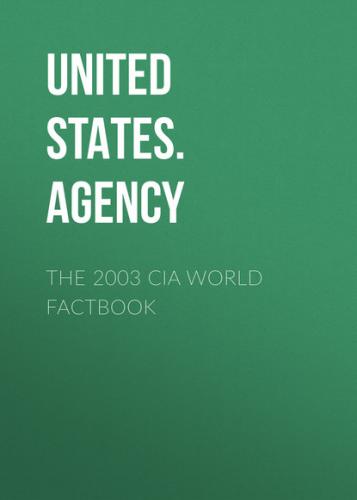Environment - current issues:
local scientists consider the Abseron Yasaqligi (Apsheron
Peninsula) (including Baku and Sumqayit) and the Caspian Sea to be
the ecologically most devastated area in the world because of severe
air, soil, and water pollution; soil pollution results from oil
spills, from the use of DDT as a pesticide, and from toxic
defoliants used in the production of cotton
Environment - international agreements:
party to: Biodiversity, Climate Change, Climate Change-Kyoto
Protocol, Desertification, Endangered Species, Hazardous Wastes,
Marine Dumping, Ozone Layer Protection, Wetlands
signed, but not ratified: none of the selected agreements
Geography - note:
both the main area of the country and the Naxcivan exclave are
landlocked
People Azerbaijan
Population:
7,830,764 (July 2003 est.)
Age structure:
0–14 years: 27.7% (male 1,101,320; female 1,064,214)
15–64 years: 64.7% (male 2,468,772; female 2,601,312)
65 years and over: 7.6% (male 236,683; female 358,463) (2003 est.)
Median age:
total: 27.1 years
male: 25.7 years
female: 28.6 years (2002)
Population growth rate:
0.44% (2003 est.)
Birth rate:
19.28 births/1,000 population (2003 est.)
Death rate:
9.68 deaths/1,000 population (2003 est.)
Net migration rate:
−5.16 migrant(s)/1,000 population (2003 est.)
Sex ratio:
at birth: 1.05 male(s)/female
under 15 years: 1.03 male(s)/female
15–64 years: 0.95 male(s)/female
65 years and over: 0.66 male(s)/female
total population: 0.95 male(s)/female (2003 est.)
Infant mortality rate:
total: 82.41 deaths/1,000 live births
female: 80.32 deaths/1,000 live births (2003 est.)
male: 84.4 deaths/1,000 live births
Life expectancy at birth:
total population: 63.16 years
male: 58.95 years
female: 67.58 years (2003 est.)
Total fertility rate:
2.34 children born/woman (2003 est.)
HIV/AIDS - adult prevalence rate:
less than 0.1% (2001 est.)
HIV/AIDS - people living with HIV/AIDS:
less than 1,400 (2001 est.)
HIV/AIDS - deaths:
less than 100 (2001 est.)
Nationality:
noun: Azerbaijani(s)
adjective: Azerbaijani
Ethnic groups:
Azeri 90%, Dagestani 3.2%, Russian 2.5%, Armenian 2%, other 2.3%
(1998 est.)
note: almost all Armenians live in the separatist Nagorno-Karabakh
region
Religions:
Muslim 93.4%, Russian Orthodox 2.5%, Armenian Orthodox 2.3%, other
1.8% (1995 est.)
note: religious affiliation is still nominal in Azerbaijan;
percentages for actual practicing adherents are much lower
Languages:
Azerbaijani (Azeri) 89%, Russian 3%, Armenian 2%, other 6% (1995
est.)
Literacy:
definition: age 15 and over can read and write
total population: 97%
male: 99%
female: 96% (1989 est.)
Government Azerbaijan
Country name:
conventional long form: Republic of Azerbaijan
conventional short form: Azerbaijan
local short form: none
former: Azerbaijan Soviet Socialist Republic
local long form: Azarbaycan Respublikasi
Government type:
republic
Capital:
Baku (Baki)
Administrative divisions:
59 rayons (rayonlar; rayon - singular), 11 cities* (saharlar; sahar
- singular), 1 autonomous republic** (muxtar respublika); Abseron
Rayonu, Agcabadi Rayonu, Agdam Rayonu, Agdas Rayonu, Agstafa Rayonu,
Agsu Rayonu, Ali Bayramli Sahari*, Astara Rayonu, Baki Sahari*,
Balakan Rayonu, Barda Rayonu, Beylaqan Rayonu, Bilasuvar Rayonu,
Cabrayil Rayonu, Calilabad Rayonu, Daskasan Rayonu, Davaci Rayonu,
Fuzuli Rayonu, Gadabay Rayonu, Ganca Sahari*, Goranboy Rayonu,
Goycay Rayonu, Haciqabul Rayonu, Imisli Rayonu, Ismayilli Rayonu,
Kalbacar Rayonu, Kurdamir Rayonu, Lacin Rayonu, Lankaran Rayonu,
Lankaran Sahari*, Lerik Rayonu, Masalli Rayonu, Mingacevir Sahari*,
Naftalan Sahari*, Naxcivan Muxtar Respublikasi**, Neftcala Rayonu,
Oguz Rayonu, Qabala Rayonu, Qax Rayonu, Qazax Rayonu, Qobustan
Rayonu, Quba Rayonu, Qubadli Rayonu, Qusar Rayonu, Saatli Rayonu,
Sabirabad Rayonu, Saki Rayonu, Saki Sahari*, Salyan Rayonu, Samaxi
Rayonu, Samkir Rayonu, Samux Rayonu, Siyazan Rayonu, Sumqayit
Sahari*, Susa Rayonu, Susa Sahari*, Tartar Rayonu, Tovuz Rayonu,
Ucar Rayonu, Xacmaz Rayonu, Xankandi Sahari*, Xanlar Rayonu, Xizi
Rayonu, Xocali Rayonu, Xocavand Rayonu, Yardimli Rayonu, Yevlax
Rayonu, Yevlax Sahari*, Zangilan Rayonu, Zaqatala Rayonu, Zardab
Rayonu
Independence:
30 August 1991 (from Soviet Union)
National holiday:
Founding of the Democratic Republic of Azerbaidzhan, 28 May (1918)
Constitution:
adopted 12 November 1995
Legal system:
based on civil law system
Suffrage:
18 years of age; universal
Executive branch:
chief of state: President Ilham ALIYEV (since 31 October 2003)
head of government: Prime Minister Artur RASIZADE (since 4 November
